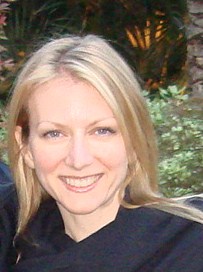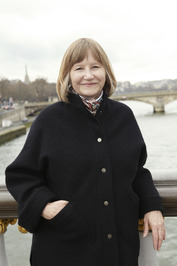 Thanks to my friend Humaira for inviting me to participate in “My Writing Process Blog Tour” via @MondayBlogs. I love writing and talking about writing. Stop me if I go on too long.
Thanks to my friend Humaira for inviting me to participate in “My Writing Process Blog Tour” via @MondayBlogs. I love writing and talking about writing. Stop me if I go on too long.
1. What am I working on?
A few years ago my neighbor, in casual conversation, said to me: Well you know, my son just can’t lie. She might have been saying he didn’t like onions, or hadn’t learned his times tables yet—that’s how matter-of-fact she was. And when I thought about her son, I could see how she was right. He took great pains to try to be truthful, even if that meant a string of qualifiers in every sentence. And then I thought: that’s a great trait for a character. What if you take a person who fundamentally cannot lie, and then put her in circumstances that force her to do just that? What would that do to a person?
So that’s what I’m writing about. And since I love doing research, I’ve set the story in antebellum America on a riverboat theatre going down the Ohio River (I grew up in Ohio). The South is on one side, the North is on the other, and my main character, the one who cannot lie, gets caught up in the Underground Railroad. So she not only has to lie, but she has to break the law, too.
2. How does my work differ from others of its genre?
In some ways my work is historical fiction and in some ways it’s literary fiction set in the past. I love the idea of turning traditions and stereotypes on their heads. My bad guy wears a white hat.
3. Why do I write what I do?
Writing is like solving a puzzle that you first have to create. Something tugs at me (like the character who can’t lie) and I want to work out what happens. At first the process seems very cerebral, but as I go along month after month developing the story and writing it down, I realize that there is always a personal element way down somewhere. The novel I just finished, called Thieving Forest, is about a family of sisters, and I grew up with six sisters. I had been reading Patrick O’Brien and Joseph Campbell and I wanted to write a quest story—but with a female lead.
4. How does your writing process work?
I do a lot of exercises in the beginning, working out what my characters want, what they need, and what obstacles I can put in their way. I also do a lot of research. After I decide on a time and place, I try to read a lot of first-hand materials—journals and so forth—which generate ideas about what might happen in my story. I found a great first-person account of what happened to a frontiersman who’d been bitten by a snake, and it became a pivotal scene in my novel.
Eventually I make a kind of outline, although it might just be a list of scenes. Every morning I write for ten minutes using a prompt, just to get the juices flowing—I may or may not use what I’ve written— and I do this even if I’m in the research phase. Then, when I’m writing, I try to write for at least two hours. I find that I often want to stop after I’ve written about one page (okay, that’s great, enough for today!) but if I push myself on I almost always get to something better, something that will help me carry the story forward the next day. Coffee helps.
I have invited two very talented writers, Monica Comas and Alice K. Boatwright, to blog next Monday July 23rd about their process. A quick intro:
 Monica Comas (née Rivituso) started writing creatively as a kid growing up in Cleveland, Ohio. Determined to make a living with words, she went on to receive her master’s in journalism from New York University. After a decade working as a journalist, then a financial editor, she’s returned to her creative-writing roots to focus on fiction full-time. Words that don’t end up in a manuscript, can be found here: http://www.monica-comas.com.
Monica Comas (née Rivituso) started writing creatively as a kid growing up in Cleveland, Ohio. Determined to make a living with words, she went on to receive her master’s in journalism from New York University. After a decade working as a journalist, then a financial editor, she’s returned to her creative-writing roots to focus on fiction full-time. Words that don’t end up in a manuscript, can be found here: http://www.monica-comas.com.
 Alice K. Boatwright is the author of two books: Under an English Heaven and Collateral Damage. Under an English Heaven is the first Ellie Kent mystery — a literary romance mystery set in the Cotswolds, inspired by my lifelong love of England and the cozy mystery genre. It was published by Cozy Cat Press and is available as a paperback and e-book.
Alice K. Boatwright is the author of two books: Under an English Heaven and Collateral Damage. Under an English Heaven is the first Ellie Kent mystery — a literary romance mystery set in the Cotswolds, inspired by my lifelong love of England and the cozy mystery genre. It was published by Cozy Cat Press and is available as a paperback and e-book.
Collateral Damage, which was published by Standing Stone Books in 2012, is three novellas about the long range impact of the Vietnam War. It received the 2013 Bronze Medal for Literary Fiction, Independent Publisher Book Awards and was a finalist for the Flannery O’Connor Award for Short Fiction. Collateral Damage was on the Small Press Distribution bestseller list in both 2012 and 2013, and it is also available as both a paperback and e-book. You can find it at www.collateraldamage.us. Alice’s Blog Tour will be up on June 23 at http://paris-writers.tumblr.com/.